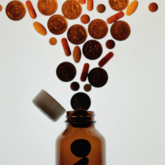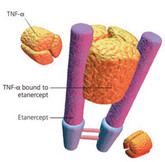Biosimilars
Positive phase III results for adalimumab biosimilar
US-based biologicals giant Amgen announced on 9 November 2015 that results from a phase III study of its adalimumab biosimilar (ABP 501) had ‘met the primary endpoint’.
FDA accepts application for pegfilgrastim biosimilar
Sandoz, the generics division of Novartis, announced on 18 November 2015 that its regulatory submission for its proposed pegfilgrastim biosimilar had been accepted by the US Food and Drug Administration (FDA).
Infliximab price wars
Merck has reportedly slashed the price of its blockbuster Remicade (Infliximab) in the UK in order to fight off growing competition from infliximab biosimilars.
Outcry at new US biosimilars reimbursement policy
A newly announced US Centers for Medicare and Medicaid Services (CMS) rule that gathers together all biosimilars of a single reference product under just one code has been widely criticized by drugmakers. Drugmakers warn that the rule on Medicare physician payment would reduce incentives for developing biosimilars, reduce patient access and create safety issues due to the inability to differentiate between biosimilars and reference products.
EMA recommends approval of etanercept biosimilar
The European Medicines Agency’s (EMA) Committee for Medicinal Products for Human Use (CHMP) announced on 19 November 2015 that it had recommended granting of marketing authorization for a biosimilar etanercept product (SB4).
Amgen submits biosimilar adalimumab application to FDA
Biotech giant Amgen announced on 25 November 2015 that it had submitted an application for marketing approval for its adalimumab biosimilar (ABP 501) to the US Food and Drug Administration (FDA).
AE reporting for biologicals
Researchers from the Tufts Center for the Study of Drug Development (Tufts CSDD) sought to answer [1] examined primary suspect reports sent to the US Food and Drug Administration’s (FDA) Adverse Event Reporting System (FAERS) from US reporters for two biologicals that have lost patent exclusivity – somatropin and human insulin. The study was carried out to inform both FDA and the global drug development community about how naming of biosimilars might affect the traceability of adverse events (AEs).
Positive phase III results for etanercept biosimilar
On 9 November 2015, biopharmaceutical specialists Coherus and Baxalta (a spin-off company from Baxter International) announced positive results from a phase III study of its etanercept biosimilar (CHS-0214).
Biosimilar naming in the US, the debate continues
The United States Pharmacopeial Convention (USP) has called on the US Food and Drug Administration (FDA) to reconsider its draft guidance Nonproprietary Naming of Biological Products: Guidance for Industry.
Biosimilar naming conventions around the world
Naming conventions from around the world was one of the topics investigated in a study by researchers from the Tufts Center for the Study of Drug Development (Tufts CSDD) [1].











